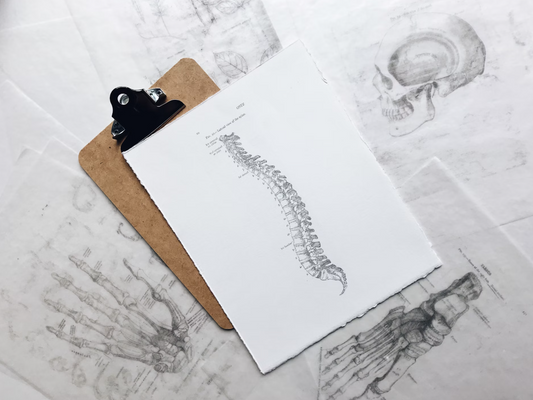As the seasons change, many of us begin to experience the discomfort of seasonal allergies—sneezing, coughing, a runny nose, and itchy eyes. For some, these symptoms can escalate into respiratory distress, making it harder to breathe. But did you know that building respiratory resilience through certain habits and practices can help you prepare your lungs for allergy season and improve your overall lung health? In this article, we’ll explore how to strengthen your lungs and breathe easier during allergy season.
Why Are Seasonal Allergies Hard on Your Lungs?
Seasonal allergies occur when your immune system reacts to airborne allergens, such as pollen, mold, or dust mites. These allergens can cause inflammation in the airways, leading to symptoms like nasal congestion, wheezing, and even difficulty breathing. Over time, repeated exposure can wear down your respiratory system, making it more sensitive to allergens.
Preparing your lungs and respiratory system for allergy season can reduce the severity of symptoms and improve your overall resilience. The key lies in strengthening your lungs, clearing out irritants, and supporting healthy breathing habits.
Building Respiratory Resilience for Allergy Season
1. Practice Deep Breathing Techniques
How it works: Deep breathing helps promote lung function and clear out any irritants in your airways. By engaging the diaphragm, deep breathing can reduce the impact of allergens and improve oxygen flow to your lungs, helping them function better during allergy season.
How to do it:
Sit or stand in a comfortable position. Inhale slowly and deeply through your nose, expanding your lungs and allowing your abdomen to rise. Exhale slowly and fully through your mouth, focusing on emptying your lungs completely. Try practicing this deep breathing technique for 5-10 minutes each day. It will help enhance lung function, reduce stress, and support overall respiratory health.
2. Use Nasal Irrigation (Neti Pot)
How it works: Nasal irrigation is a simple and effective way to clear allergens, dust, and mucus from your nasal passages. It can reduce nasal congestion and help keep your sinuses clear, allowing for easier breathing.
How to do it:
Using a neti pot or saline spray, irrigate your nasal passages with a saline solution. Tilt your head over the sink and pour the solution into one nostril, allowing it to flow out the other nostril. This process can be done daily, particularly during peak allergy season, to help keep your sinuses clear of irritants and allergens.
3. Strengthen Your Respiratory Muscles
How it works: Just like strengthening any other muscle in your body, breathing exercises can help strengthen the muscles involved in respiration. Improved muscle strength can support deeper, more efficient breaths, making it easier for your lungs to function during allergy season.
How to do it:
Incorporate simple breathing exercises, such as inspiratory muscle training, diaphragmatic breathing or pursed-lip breathing, into your routine. These exercises help strengthen the diaphragm and intercostal muscles, allowing for deeper, more effective breaths. Try adding 5-10 minutes of these exercises each morning or before bed to build respiratory strength.
4. Stay Hydrated for Better Mucus Clearance
How it works: Staying hydrated is crucial during allergy season, as it helps thin out mucus and makes it easier for your body to clear allergens and other irritants from your airways. Dehydration can make mucus thick and sticky, which may exacerbate allergy symptoms like congestion and coughing.
How to do it:
Drink plenty of water throughout the day, aiming for at least 8 glasses (about 2 liters) per day. Herbal teas, especially those with anti-inflammatory ingredients like ginger or peppermint, can also help soothe irritated airways and improve hydration. You can also try inhaling steam or using a humidifier to keep your respiratory system moist and prevent irritation.
5. Limit Exposure to Allergens
How it works: One of the best ways to protect your lungs during allergy season is to minimize exposure to the allergens that trigger symptoms. Taking steps to reduce allergens in your environment can help protect your respiratory system from unnecessary stress.
How to do it:
- Stay indoors during peak pollen hours: Pollen levels are typically highest early in the morning or on windy days. Try to avoid outdoor activities during these times.
- Keep windows closed: This helps reduce the amount of pollen and other allergens entering your home.
- Use air purifiers: HEPA air filters can help remove allergens from the air, making your living space cleaner and easier to breathe in.
- Shower after outdoor activities: If you've been outside, showering and changing clothes can help remove pollen and other allergens from your body.
Benefits of Respiratory Resilience During Allergy Season
- Improved lung function: By strengthening the muscles involved in breathing, you enhance your lungs’ ability to handle allergens and pollutants.
- Reduced symptoms: Regular deep breathing, nasal irrigation, and hydration help minimize allergy symptoms, such as congestion and coughing.
- Better stress management: Many breathing techniques, such as deep breathing and diaphragmatic breathing, activate the parasympathetic nervous system, reducing stress and calming the body’s allergic response.
- Faster recovery: Building respiratory resilience helps your lungs recover more quickly after exposure to allergens, reducing the impact of allergy season on your overall health.
A Few Final Thoughts
Preparing your lungs for allergy season doesn't have to be complicated. By adopting a few simple practices, such as deep breathing exercises, nasal irrigation, staying hydrated, and limiting exposure to allergens, you can improve your respiratory resilience and breathe easier. With consistent effort, these habits will help protect your lungs, reduce allergy symptoms, and support your overall respiratory health throughout the year.




